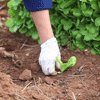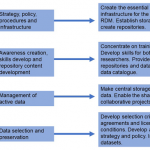

COVID-19 could cost world $1 Trillion if it becomes a pandemic, analysts predict
The ghastly prospect that the coronavirus outbreak could become the first truly disruptive pandemic of the globalisation era is renewing doubts over the stability of the world economy.
UNDP and UNDRR to step up action on climate and disaster risk
The United Nations Development Programme (UNDP) and the UN Office for Disaster Risk Reduction (UNDRR) signed a joint partnership agreement on 21 February, to step up collaboration on three priority areas to accelerate the implementation of the Sendai Framework for Disaster Risk Reduction 2015-2030 and the UN Plan of Action on Disaster Risk Reduction
SDSN TReNDS Debuts Roundtable on “Governing the Data Revolution”
Data is critical to achieving the SDGs, and while new data sources can offer many solutions to fill these crucial gaps, they need to be carefully managed. In a new roundtable debate from SDSN TReNDS, a selection of members discuss the role of traditional vs. new data methods, policy and regulatory needs for data governance, and where to invest to maximize value.
Helping shape new flood forecasting services in the Wellington region, New Zealand
Greater Wellington Regional Council (GWRC) are embarking on a programme to establish improved flood forecasting services across the Wellington Region on New Zealand’s north island.
Australia: Climate changes threatens research itself
A collaborative study between The University of Queensland and RMIT found extreme climate change weather events such as bushfires, hailstorms and floods impacted on research production.
Tonkin + Taylor provides Dominica with EWS support
T+T’s Dr Bapon Fakhruddin has been tasked by the United Nations Development Programme for Dominica to help produce Dominica’s new multi-hazard impact-based early warning system.

2019 Novel Coronavirus (2019-nCoV): Strategic preparedness and response plan
This strategic preparedness and response plan outlines the public health measures that the international community stands ready to provide to support all countries to prepare for and respond to 2019‑nCoV. The document takes what has been learned so far about the virus and translates that knowledge into strategic action that can guide the efforts of all national and international partners when developing context-specific national and regional operational plans.
Climate Change Impacts and Adaptation for Transport Networks and Nodes
Extreme weather events, some of which are increasing in intensity and frequency, as well as slower onset climate changes (for example, sea level rise) and cumulative effects can result in transportation infrastructure damages, operational disruptions, and pressures on supply chain capacity and efficiency. As such, the United Nations Economic Commission for Europe (ECE) Group of Experts on Climate Change Impacts and Adaptation for Transport Networks and Nodes (the Group of Experts) has been analysing the impacts of climate change on main transport assets in the ECE region, as presented in this report.
Nature risk rising: Why the crisis engulfing nature matters for business and the economy
Nature Risk Rising, produced in collaboration with PwC and the first report in the NNE series, explains how nature-related risks matter to business, why they must be urgently mainstreamed into risk management strategies and why it is vital to prioritise the protection of nature’s assets and services within the broader global economic growth agenda.
Climate risk and response: Physical hazards and socioeconomic impacts
In this report, the focus is on understanding the nature and extent of physical risk from a changing climate over the next one to three decades, exploring physical risk as it is the basis of both transition and liability risks.
Cost-benefit analysis of flood early warning system in the Karnali River Basin of Nepal
Nepal is severely flood-prone and ranks 20th worldwide in terms of flood-affected population. Although it is widely acknowledged that both national and community-based early warning systems (EWS) can reduce the impact of floods, studies quantifying the cost-benefits remain scarce. This study analyses the costs and benefits of the EWS in the Lower Karnali River Basin in Nepal through 453 household surveys, 30 focus group discussions and 40 key informant interviews.
Sustainable and FAIR Data sharing in the humanities
The ALLEA report “Sustainable and FAIR Data Sharing in the Humanities” provides key recommendations to make digital data in the humanities “Findable, Accessible, Interoperable and Reusable”, in line with the FAIR principles.

Sustainable Research + Innovation Congress 2020 – 14-17 June – Brisbane, Australia
The Sustainability Research & Innovation Congress 2020 (SRI2020) is the world’s first transdisciplinary gathering in sustainability – it will be a space of fierce advocacy for sustainability scholarship and innovation, collaboration and action.
Workshop on Impact-based Forecast and Warning Services for Members of WMO/UNESCAP Panel on Tropical Cyclones – 29 March-2 April – Muscat, Oman
This joint effort is an outcome of recent strengthened inter-regional cooperation on building the resilience to face extreme events, including tropical cyclones disasters. The workshop aims to build early warning skills in risk assessment and predicting the impact of tropical cyclones.
Asia-Pacific Ministerial Conference on Disaster Risk Reduction 2020 – 29 June-2 July- Brisbane, Australia
Attracting more than 3,000 delegates from over 40 countries, the APMCDRR is the largest gathering in the Asia-Pacific to progress disaster risk reduction efforts. Participants include ministers, government officials, representatives of the private sector, non-for-profits, civil society, and vulnerable groups.









 euroCRIS, the International Organisation for Research Information will hold its biennial International Conference (CRIS2020) from June 17-20 in Limassol, Cyprus: New Technologies and Open Science in CRIS Systems.
euroCRIS, the International Organisation for Research Information will hold its biennial International Conference (CRIS2020) from June 17-20 in Limassol, Cyprus: New Technologies and Open Science in CRIS Systems. All the necessary information on the CfP for CRIS2020 can be found at:
All the necessary information on the CfP for CRIS2020 can be found at: 












